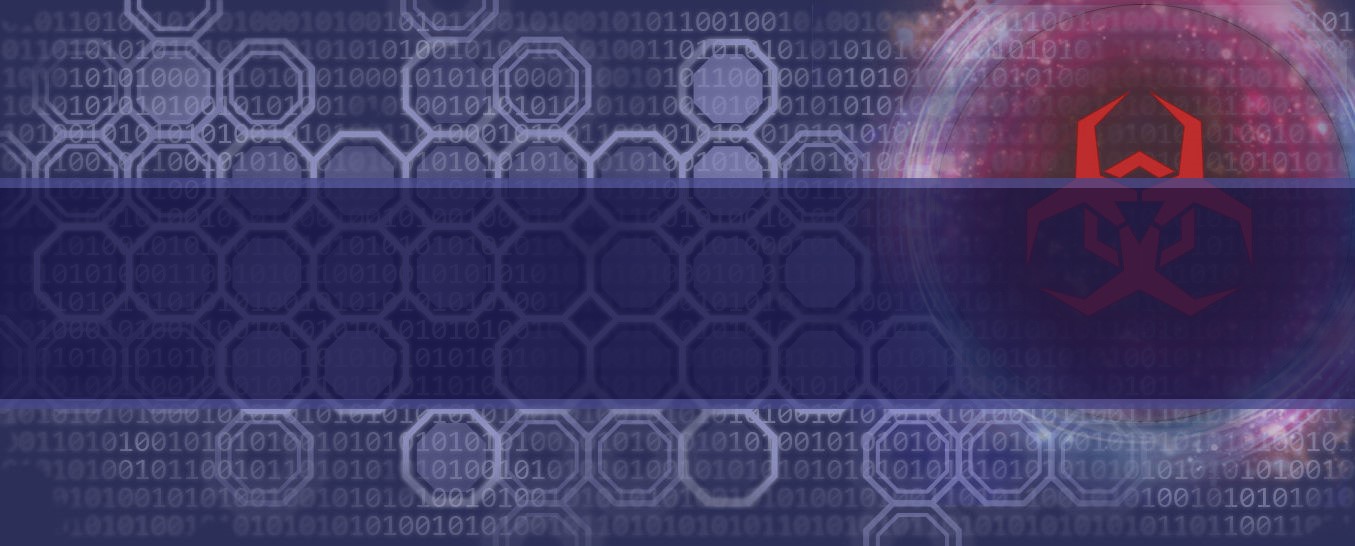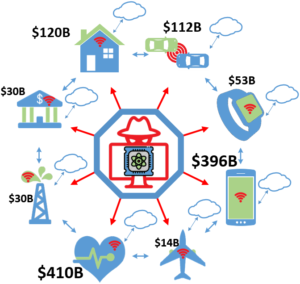
What is quantum computing?
Quantum computers have the ability to certain computations exponentially faster than any classically designed (super) computers ever could. This could lead to unprecedented advances in artificial intelligence disease eradication and much more. However, in the wrong hands these computers will also have the ability to break the current encryption algorithms keeping the internet, and our data, safe.
Classical computers (which you are probably currently viewing this page on) work on bits that can be either 1 or 0. You can think of this as a light switch turning a lightbulb on or off. On a quantum computer, the quantum bit (or qubit) can be 1, 0, or anything in between. This means the “light switch” can be on, off, or both at the same time. For data information, this means that a quantum computer can not only store multiple bits of data on the same qubits at the same time, but it can also compute all of that data at the same time also, making them exponentially more powerful than a classical computer.
For example, lets say you have four classical bits to store a number. Four bits allows you store any decimal number from 0 to 15, but only one at a time. If you wanted to store all 16 numbers you would need 16*4 classical bits. A quantum computer can store all 16 numbers on the same four bits at the same time, and do any calculation on them requested. This means a quantum computer with just 32 qubits, you could be in 232 = 4,294,967,296 states simultaneously which could translate to approximately 500 MB of data.
Are quantum computers available?
Governments around the world and high-tech giants such as Microsoft, Google, IBM, and more have pledged or already invested millions and even billions of dollars to develop large-scale quantum computers and there does not seem to be any reason to slow down now.
Google has recently announced it has achieved quantum supremacy, which is a term that signifies a single task was done on a quantum computer that would take thousands of years (even if possible) on a classical computer. This is another leap forward for quantum computing and moves us ever closer to the day large-scale quantum computers are available. With high-tech companies such as Google, Microsoft, Amazon, IBM, and more having already build small-scale quantum computers and countries like the United States, China, Russia and more already pledging billions of dollars to be the first to build a large-scale quantum computer, the race is on.
It is expected that in as little as five years from now we could begin to see some of the benefits of quantum computers to the technology, science, health, and environmental sectors. However, quantum computers large enough to break current cryptographic algorithms are more likely a decade away.

If large scale quantum computers are not available, am I safe?
The short answer is no. While the cryptographic security used today cannot be broken with current methods, it can be stored, and broken in the future when quantum computers are available. This type of attack is called a ‘harvest and decrypt’ attack. If information being sent today is still sensitive more than a decade from now (like banking data and classified governmental documents) then that information is already in danger.
A longer answer is that today, you are more likely to be hacked by having an insecure password, or by having no security set up at all. Governments around the world are working on standardizing quantum-safe solutions and companies are beginning to invest money into testing these solutions on their devices. It will be years before the quantum-safe solutions are implemented on servers and clouds and other connected devices, but the sooner we begin this transition the sooner we will be ready.
What is at risk?
Any device connected to a network is vulnerable to a quantum-enabled attacked, one quantum-computers are available. A big concern of industry today is the expected transition period. It took more than 15 years for industries to adopt ECC (elliptic curve cryptography) over RSA and the transition to quantum-safe solutions is expected to be even more challenging.
How are we helping?
At PQSecure, we focus on the risks that quantum computers pose, and that threat is to cryptography. There are multiple layers of security and encryption in place on most websites and cloud servers today to keep your data safe. However, if a single layer is broken, all of your stored data could be a risk. By making sure these layers are quantum-safe, we can avoid the risk of quantum computers, when they arrive.
PQSecure creates quantum-safe solutions that are designed to be power and energy efficient which makes them ideal for small, embedded devices such as IoT. With the fast growth of the IoT industry, these devices pose additional risks to your home or work networks. Each new devices adds an additional entry point for quantum-enabled hackers to access your data. And with the focus on these devices to be cheaper and faster, many of these IoT companies cannot find a viable solution, and thus are selling IoT devices without these crucial built-in security features.
